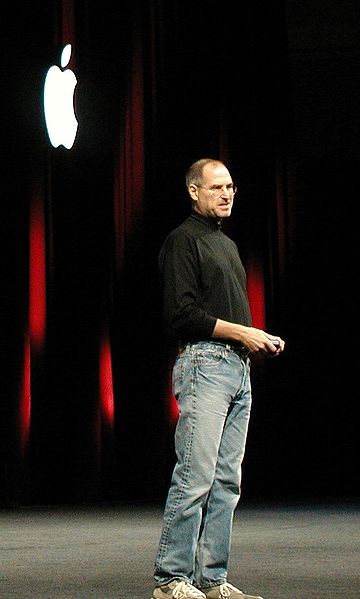11.22.13
Posted in FUD, Google, Microsoft at 12:15 pm by Dr. Roy Schestowitz
Summary: How low Microsoft’s strategists have stooped, trying to accuse Google of doing what Microsoft does to a much greater degree (colluding with the NSA) and offering bribes for accusations to be made by the public
THE EXTENT of Microsoft AstroTurfing is quite breathtaking. We have already covered examples where Microsoft bribed activists and university professors to smear Google, but this time it’s worse than ever before. Microsoft takes a wholesale approach to it.
Co-opting grassroots movements and turning them into AstroTurfing is one strategy which Microsoft is trying to use against Google, in essence turning grassroots — without anyone’s permission — into some kind of volunteer Microsoft PR workforce.
Let’s make it clear that Google is not incapable of doing evil. Some people are upset at Google for all sorts of reasons, some of which are legitimate. When it comes to Google+ there are a lot of complaints, citing threats to privacy. Google+ does not have walled gardens like Facebook but it does use an increasing level of pressure for people to join. It’s not the same as forcing them, so in that sense, Facebook is still far worse. Facebook is partly owned by Microsoft and it holds people’s data hostage so that they give away huge piles of their private data.
For some, reasons for leaving Google+ are entirely different. As one who has supported us for years put it this month: “I’ve decided to leave Google Plus, for various reasons, which are roughly as follows:
“1. Not enough original material that interests me
“Most of what’s posted on Google Plus is just a combination of Farcebook-style memes/aphorisms and syndicated news articles. The silly aphorisms don’t interest me in the slightest, and I don’t need to come to G+ just to read the news.
“Joining the chorus of outrage at some shocking news, only holds an appeal for so long, then quickly becomes tiresome, indeed outright depressing. The total amount of actually interesting, original material on here is basically zero, and the level of discourse is … basic, putting it mildly. There are some exceptions, but they’re sadly very rare.
“2. Too many neanderthals
“I’ve never used Farcebook, but I’ve been led to believe that the average IQ on here is much higher, along with the general level of morality. That may be true, but there are still far too many low-brow thugs, especially of the gun-wielding libertarian variety.
“I think the root of the problem may be the disproportionately high number of Americans using this service, particularly from the southern states, and I mean that purely as an observation, not an insult per se.
“Our respective cultures are just too alien to be bridged, I’m afraid. I need a more Euro-centric environment, preferably one not filled with right-wing, money-obsessed predators who view everyone else as prey.
“I could (and have) just use the mute/block button, but there comes a point where it’s obvious I’m wasting my time. There just aren’t enough of my sort of people using this service to make it worthwhile. To the tiny handful who are – my apologies. If only you posted more often.
“3. The technology itself is retarded
“Please excuse my old-fashioned habits, but I come from ye olde world of Usenet, where articles can be retained indefinitely, indexed and searched for later reference. Here, everything is ethereal. The moment you post it, it’s gone, and as such is of no value whatsoever, like a fart in the wind.
“Moreover, Usenet has proper, dedicated client software, not this bloated, dysfunctional webby thing that drives me to distraction.
“Google Plus is not so much a forum for serious discussion, as a platform to generate “buzz”, which is basically just another way of saying advertising. Well sorry, but I’m not a marketeer, I’m not selling anything, and I have no interest in being an unpaid billboard for Google.
“4. I don’t like Google, the company
“In the beginning there was Yahoo! Then it sold out and became a “portal”, at which point everyone (including me) ran screaming into the welcoming arms of Google. Eventually it became clear that Google was a “Linux” company, which endeared me to Google quite a bit, given that I’m a Free Software advocate. Then they released Android (technically they assimilated it, and its creator, but I blocked out that inconvenient detail), and I became even further enamoured of Google.
“But between Eric Schmidt’s palpable contempt for privacy, and now Edward Snowden’s revelations that Google (and others) were complicit in what is possibly the most far-reaching civil rights violation in history, I’ve had enough. Frankly I’m amazed that I lasted this long.
“So I’m off, and I wont be back.
“I’m going to investigate a few other “social” thingies, like Friendica, Diaspora and GNU Social, but my albeit limited experience of Identi.ca suggests they’ll be just like Google Plus, only decentralised, more private, more secure and … much quieter. Silent, most likely. But at least I won’t be prostituting myself to Google and the NSA.
“It was an interesting experiment, but it’s over.”
I can personally relate to this and I never even thought about joining Google+, but not much of the above has to do with privacy. In fact, Google+ does not hoard so much personal data (compared to Facebook) and it does not spy on people’s desktops the way Microsoft does.
The other day we took note of Google's exploitation (newer report in [1]) of Microsoft’s death blow to Nokia (“Nokia’s Finland HQ To Become A Microsoft Site Next Year”).
Someone from Finland explained that “a followup on the sale of the headquarters” means that Nokia staff gets “kicked out of a building they once owned, perhaps even built” (Nokia’s staff which will move to Google may be based near the Russian border, which ought to make the NSA happy).
But here is where it gets interesting. After bribing so many people to demonise Google, including people whom Microsoft paid to edit Wikipedia (the Wikimedia Foundation is starting to treat such abuses seriously), this corrupt monopolist takes its “Scroogled” campaign further by bribing a lot of people to carry campaign slogans. As the British press put it: “If you’re bothered by the various ways Google uses the data you submit to its services to serve you targeted ads, then Microsoft has the T-shirt for you. Or a coffee mug, perhaps. You know – stuff that totally isn’t ads.” And Microsoft pays for this kind of lobbying, too. There is already a reactionary satire with images and it says: “Steve Warner, lead consultant with, ScanStats, said, “Internally, Google had been one of the staunch critics of Microsoft for creating back doors in its products such as Windows or Internet Explorer to make it easy for authorities to take control of citizen’s computers. But I am surprised that Google has gone public with this criticism and started the MicroShaft campaign.””
Google would not do that. Why? Because Google is not Microsoft. It does not distribute anti-Microsoft merchandise and definitely it won’t pay people to carry it around [2]. At Microsoft, however, the rules are different. Bribes are business as usual, as the story of Munich helps remind us. A new report has the details [3] and we ought to remind readers that Microsoft was recently investigated for bribing governments around the world. Shortly thereafter Steve Ballmer said he was leaving Microsoft, perhaps reducing the chances of receiving a jail sentence. At Munich, Ballmer allegedly tried to bribe them. But don’t expect Microsoft to have any remorse. Remember this: at Microsoft, bribes are just a way of doing business. No wonder Microsoft is so widely disliked. It deserves this, it is a corrupt company and it continues to show us that nothing ever changed. █
Related/contextual items from the news:
-
Google will invest another 450 million euros ($607 million) over the next few years in a data center in Finland, boosting a country struggling with Nokia’s decline and weakness in its paper and steel industries.
Prime Minister Jyrki Katainen welcomed the move, one of the biggest foreign direct investments in Finland, and said the government planned to reduce electricity taxes for data centers to encourage more such stakes.
-
-
Breaking up with Microsoft is hard to do. Just ask Peter Hofmann, the man leading the City of Munich’s project to ditch Windows and Office in favour of open source alternatives.
[...]
The prospect of such a high profile loss, and other organisations following Munich’s lead, spurred Microsoft to mount a last ditch campaign to win the authority back. A senior sales executive at the time told general managers in EMEA “under NO circumstances lose against Linux.” Steve Ballmer himself took time out of a skiing holiday to make a revised offer in March 2003, followed two months later by Microsoft knocking millions of Euros off the price of sticking with Windows and Office.
Permalink
 Send this to a friend
Send this to a friend
Posted in Australia, Microsoft at 7:14 am by Dr. Roy Schestowitz
Brainwash system that any dictator would be proud of

Summary: How Microsoft continues to interject itself into schools, turning education into indoctrination
OVER the years we have covered examples where Microsoft pretty much bribed nations in order to prevent them from teaching anything other than Microsoft at schools. It is too hard to forget what Microsoft did to Russian schools when they were planning to move to GNU/Linux.
The idea of indoctrination for lock-in and corporate goals (at taxpayers’ expense) is not a novel one. Microsoft has mastered the skill of corrupting schooling systems, which are now corrupted even further and fastr by Bill Gates through his heavyweight lobbying apparatus.
“The idea of indoctrination for lock-in and corporate goals (at taxpayers’ expense) is not a novel one.”This new report, titled “Microsoft wins spot in school curriculum” (euphemisms galore), gives us a new example of the above pattern. It says: “In a move that will be hailed both as in the interest of preparing children for the workforce and as a commercial creep into the school yard, Microsoft has won the right to be featured in the Queensland’s high school curriculum.
“From next year, students in 275 high schools will be able to gain credit toward their leaving certificates for completing units from the Microsoft IT Academy’s suite of 400 online courses.
“Units cover topics from basic internet security to technical certifications for enterprise software products such as SQL Server and SharePoint.
“A spokesperson for the Queensland Department of Education, Training and Employment (DETE) said the courses would be integrated predominately into maths subjects and vocational courses, such as certificates in IT and business. The program has been piloted at Albany Creek High School this year.”
What’s beyond comprehensible if why the author of this article won’t point out the obvious. Being corporate press, this is probably expected, but to describe this as some sort of “job creator” is beyond silly; it is malicious. Australia needs to build its own s and in order to achieve this it needs to adopt Free/libre technologies as Squiz did (a CMS made in Australia, now widely used in government). To shove Microsoft down children’s throat because it’s “in the curriculum” is clearly corruption, but Microsoft has made it so standard that many people are blind to the fact. █
Permalink
 Send this to a friend
Send this to a friend
Posted in Free/Libre Software, GNU/Linux, Microsoft at 6:41 am by Dr. Roy Schestowitz
More beneath the surface…

Summary: It may take many Elops before society as a whole can recognise Microsoft’s danger/threat to jobs, productivity, innovation, and plurality in the technology sector
WHEN Microsoft moles start to take over something they typically get the job done. In the case of Nokia, Yahoo and Novell, where the companies are fairly large, the hijack (completion of the job) can take several years to complete. The vulture just keeps circling the prey, weakening it by driving away resistance. Microsoft has been trying to infiltrate and in some hopeful sense take over FOSS, sometimes with the help of proxies set up by former Microsoft marketing managers for whom Indian ‘news’ (PR) sites are kindly reposting press releases with very slight edits. This helps the takeover. To a certain degree, Microsoft has been successful, even while simultaneously suing FOSS using patents. Another company which has been taking over by many former executives from Microsoft is VMware, whose former manager, who had come from Microsoft, became a manager at the Linux Foundation just earlier this month.
Don’t lose sight of Microsoft. The vulture is void of ethics and it’s always looking for the next kill. Nokia was a top Linux contributor before Microsoft killed it (just days ago the takeover became official). █
Permalink
 Send this to a friend
Send this to a friend
Posted in Microsoft, Vista 8, Windows at 6:13 am by Dr. Roy Schestowitz
Apparatus of espionage and vandalism

TPM module inside a computer
Summary: The NSA may not have managed to persuade Torvalds to put back doors in Linux, but Microsoft is just too eager to put more and more remote controls (UEFI, TPM, zero-day vulnerabilities, etc.) as new releases of Windows arrive
A REASONABLY SHORT WHILE back Kaspersky spoke about issues like the Stuxnet-ready Windows causing disasters in nuclear Russian facilities, not just nuclear Iranian facilities. The Russian press denied it, but based on translations we got shown by readers, this denial was rather weak. Concurrently there was FUD in some media channels trying to blame GNU/Linux for Stuxnet-type issues. Here is an update on this whole misinformation campaign: “Using the International Space Station as an example of an isolated critical infrastructure, Kaspersky pointed out that despite being in space, it is still vulnerable to attack. In fact, on a number of occasions over the years the orbiting outpost’s computers have become infected by malware.
““Scientists, from time to time, are coming to space with USBs which are infected. I’m not kidding,” he said. “I was talking to Russian space guys and they said ‘yes, from time to time there are virus epidemics in the space station.’””
All the above issues are the fault of the NSA-made Microsoft Windows (Microsoft and the NSA work on Windows together) and it should not be shocking that Vista 8 makes things even worse. As Steven J. Vaughan-Nichols put it the other day, “Windows 8 and TMP [are] said to combine to permit NSA spying on our computers” (as expected, but TMP is a typo).
Techrighs wrote a lot about Trusted Platform Module (TPM) in the past. The notion and implementation is being steered and promoted by large companies with software patents and connections to government spies, so we can pretty much guess who it serves. As Vaughan-Nichols puts it: “The Microsoft fan club is up in arms. Those reports about Windows 8 allowing the government to spy on us? Nonsense, they fuss. It’s simply not true that Windows 8 combines with Trusted Platform Module (TPM) to create a built-in back door for surveillance by the National Security Agency (NSA).
“No, no, they whine, the German newspaper Die Zeit had it all wrong when it claimed that the combination of TPM 2.0 and Windows 8.x (German-language article) gives Microsoft complete control over which programs can and can’t run, plus access to Windows BitLocker encryption, and the ability to remotely administer devices beyond a user’s control.”
It is clear, however, what Windows is really for, at least from the NSA’s perspective. It’s a Trojan horse. We should treat it as such. █
Permalink
 Send this to a friend
Send this to a friend
Posted in TechBytes Video at 5:10 am by Dr. Roy Schestowitz

Direct download as Ogg (00:04:52, 16.2 MB)
Summary: Dr. Richard Stallman, the Free Software Foundation’s founder, outlines his hypothetical plan for making corporations split into smaller units in order to reduce tax payments
Here is an article with the idea, stating: “Using anti-trust law now to split up a company requires a lawsuit, and many large companies can make that costly – as Microsoft did each time it was convicted. Corporations can also use their political influence to avoid being split, as Microsoft did when last convicted.”
Made entirely using Free/libre software, heavily compressed for performance on the Web at quality’s expense
Permalink
 Send this to a friend
Send this to a friend
11.21.13
Posted in Apple, FSF, Patents at 2:36 pm by Dr. Roy Schestowitz
i i i me me me ! ! !

Image by mylerdude
Summary: The man who helped glorify arrogance and selfishness is not to be put up on a pedestal anymore
SOFTWARE innovator and activist (with international reputation) Richard Stallman got a lot of flack for saying negative things about software ‘thief’, patent aggressor (over ideas that he had ‘stolen’, to use his own terminology), and selfishness advocate Steve Jobs — the man who loved to hoard and restrict, not to share.
As Linux spreads to hundreds of millions of users through Samsung (with no signs of stopping) Apple is suing, as usual, as part of Jobs’ nuclear legacy.
“Jobs colluded with Microsoft at least twice in the past, liaising against arguably common threats like Netscape and Android/Linux.”A few weeks ago the British press published the article “Steve Jobs: Apple founder a sexist bully, a skinflint and a liar says Chrisann Brennan, former partner” (Apple enthusiasts in deep denial would not even click the link).
Read the article to learn about the real Steve Jobs, not the legend which the corporate media (which is indirectly funded by the likes of Jobs) is trying to tell us about for its own agenda and self-serving reasons. Heck, those submissive publicists would even try to tell the world that Donald Trump is a generous and polite gentleman. All they look for is sponsorship through complicity (if there is no sponsorship already).
All we have left from Jobs (other than a bunch of people inspired by selfishness and arrogance) is a ‘Linux debt’ of hundreds of millions if not billions of dollars (legal fees aside). To quote this one new report: “An eight-person jury was picked yesterday, and today the Apple v. Samsung damages re-trial swung into full steam, moving through opening statements and speeding through four witnesses.”
Steve Jobs was a smear on this planet and the fact that people were inspired by him was always truly worrisome. Jobs colluded with Microsoft at least twice in the past, liaising against arguably common threats like Netscape and Android/Linux. I wholeheartedly agreed with Stallman’s remarks about Steve Jobs when he made them. What he told me personally is a better explanation of why. I am planning to meet Stallman next Friday at Lincoln and hopefully this will give an opportunity to ask some more questions, then share the answers. █
Permalink
 Send this to a friend
Send this to a friend
Posted in FSF at 2:09 pm by Dr. Roy Schestowitz

By NicoBZH from Saint Etienne
Summary: Richard Stallman writes a letter to Judge Preska, whose prosecution against (and demonisation of) Jeremy Hammond shows a common misunderstanding/misconception
ON A COUPLE of occasions last week (and on other occasions quite recently) we wrote about the Hammond trial [1, 2], which oddly enough had appointed as its judge the spouse of a Stratfor client. Here’s Richard Stallman’s letter, which was quoted by a news site [1] the other day:
Dear Judge Preska
I’ve been proud to call myself a hacker since 1971. That’s when I was
hired by the MIT Artificial Intelligence Lab to join the team that
developed the lab’s operating systems — for which the unofficial job
title was “system hacker”. My subsequent hacking career has included
developing the GNU operating system, which is often erroneously called
“Linux”, and the legal hack of “copyleft” which uses copyright law to
ensure that all users of a program are free to redistribute it and
change it. I’ve received numerous awards and doctorates for my
hacking, and have been invited twice to publish articles in law
reviews.
Being a hacker means practicing and enjoying playful cleverness. (See
stallman.org/articles/on-hacking.html.) It does not particularly have
to do with breaking security. Indeed, no one ever broke security on
the AI lab’s system, because we decided not to implement any.
That decision, made by the original team members who became my
mentors, was not taken lightly: it was the result of careful political
and philosophical thought. Instead of keeping most users (those
without “privileges” — which already sounds like a prison) shackled
so that they could not hurt each other, we thought the lab members and
guest users could learn to get along as a community, choosing not to
hurt each other. And they did!
This example is not unusual for hackers. From the beginning, hackers’
taste for playful cleverness has often gone along with a sense of
social responsibility, concern for others’ well-being. Jeremy Hammond
is a fine example of a socially responsible hacker. He found a clever
way to expose the many nefarious deeds that Stratfor was planning and
proposing.
People should not be allowed to enter others’ computers without
permission; but when punishing someone for virtual trespassing, we
ought to consider his motive. Those who trespass as part of a
nonviolent protest, either physically or virtually, should not receive
severe punishments. Those who act neither for gain nor for malice
should not receive severe punishments. Imagine where our country
would be if the civil rights and antiwar sit-ins had been punished by
years in prison! If we do not want the US to be like Putin’s Russia,
imposing long sentences on protesters, we must steer clear of doing
so. That applies to virtual protests as well as physical ones.
I therefore respectfully suggest that Hammond be sentenced to
community service. To make use of his skills and abilities, this
service could consist of helping nonprofit organizations protect their
personal data.
Sincerely,
Richard Stallman
Lead developer of the GNU system (gnu.org)
President, Free Software Foundation (fsf.org)
MacArthur Fellow
Internet hall-of-famer (internethalloffame.org)
Stallman helped create what many of us call “Linux” now. He also fought for civil rights in the digital age, including privacy (see this article from October [2]). Thanks to GNU, which he founded 30 years ago, we now have Octave [3] (which I used a lot for work) and GCC (which a lot of companies use all the time). The latter project is still a leading example of GNU’s huge impact (see news in [4,5]) and despite Java’s advantages [6] GCC is walking away from it [7], probably due to Oracle’s behaviour.
Without GCC, where would C and C++ be today? It is rather sad that the biggest innovators are being characterised as criminals in the corporate media, whereas the biggest criminals are being portrayed as saints, heroes, and sometimes innovators too. █
Related/contextual items from the news:
-
Foundation president Richard Stallman tried to get Stratfor hacker Jeremy Hammond’s judge to only hand down a community service sentence. Hammond, instead, received 10 years in jail today.
Stallman provided VentureBeat with his letter in full, which you can find below.
-
As Richard Stallman’s GNU Project turns 30, the Free Software Foundation aims for a cloud that foils state-sponsored snooping
-
Finding the best way to process your data can be complicated. I recently became involved in a project where I needed to filter out data from an RF signal. Because I am not an RF designer with years of experience, I actually had to do a bit of reinventing the wheel. With a recording of data in hand, one option was to try and feed that data into a microcontroller, write up some test code, and then analyze the results. Another option was to use GNU Octave.
GNU Octave is a MATLAB-type environment that allows for numerical simulation. Information about the history of GNU Octave can be found here. MATLAB is an interpreted language that is coupled with the program by the same name. The main difference between MATLAB and GNU Octave is that MATLAB costs many thousands of dollars, whereas GNU Octave is an open-source program.
-
-
-
In benchmarks, Java-based frameworks enjoy a big performance lead
-
GCC developers from multiple companies are beginning to reach agreement that it’s time for Java to be turned off by default in GCC. The Java compiler support in GCC is in the form of GCJ, but it doesn’t see much active development these days with more of the Java work happening in OpenJDK. Developers are looking to disable Java from the default GCC build process but to potentially replace it with the Go or ADA languages.
Permalink
 Send this to a friend
Send this to a friend
Posted in Microsoft, Patents at 1:44 pm by Dr. Roy Schestowitz
Ghost of Microsoft, they know where it came from…

Summary: Microsoft, which is the source of many patent trolls in the world of software, is trying to present itself as “against trolls”
TECHRIGHTS has written a lot about Acacia since 2007 (the Wikipedia page looks like a PR masterpiece). 2007 was the year Acacia, a patent troll, launched an attack on Linux. 6 years later Microsoft sues Acacia and just as a reminder of news we covered before: “In 2010, Microsoft agreed to pay an Acacia subsidiary to license a portfolio of patents related to smartphones and tablets ultimately owned by Tokyo-based web browser firm Access Co.”
According to this Microsoft booster (altering the above report from Reuters), “Microsoft sued Acacia Research Corp. today, accusing the company of breaking a contract “to license various smartphone and mobile computing technologies to Microsoft,” Reuters reported.
“The suit was filed in US District Court in New York, but it’s currently under seal, which means that details are thin. The Microsoft accusations come in response to recent suits Acacia subsidiaries filed against Microsoft that allege infringement of more than a dozen patents. Acacia filed these lawsuits despite the fact that “in 2010, Microsoft agreed to pay an Acacia subsidiary to license a portfolio of patents related to smartphones and tablets ultimately owned by Tokyo-based Web browser firm Access Co.,” Reuters wrote.”
‘”Acacia’s lawsuits are the worst kind of abusive litigation behavior, attempting to extract payment based on litigation tactics and not the value of its patents,” Microsoft Deputy General Counsel David Howard told Reuters.”
This claim does not hold water. Acacia has been rather helpful to Microsoft for years and it also absorbed senior staff from Microsoft.
In other news from the same source, Newegg is still going after patent trolls. To quote the writer (who is definitely not a Microsoft booster): “After a five years of legal battles over Jones’ patent, involving hundreds of lawsuits and tens of millions of dollars in payments, that question still has no clear answer.
“Whatever the invention, hundreds of companies have paid tribute to it. Jones’ patent, now wielded through a holding company called TQP Development, has become one of the most widely asserted patents in history. In complaints, TQP lawyers have accused website after website of patent infringement for using one of the most common Web-encryption strategies: combining the Secure Sockets Layer (SSL) protocol with the RC4 encryption algorithm.”
Newegg has been very serious when it comes to fighting patent trolls, whereas Microsoft has been openly feeding patent trolls and using them as a weapon against competitors like Android. We must not let Microsoft portray itself as “against trolls”; Microsoft itself it the troll and it’s the source of the world’s biggest patent troll. Heck, its co-founder is a patent troll, too. The other Microsoft co-founder uses patents for huge profits at taxpayers’ expense. █
Permalink
 Send this to a friend
Send this to a friend
« Previous Page — « Previous entries « Previous Page · Next Page » Next entries » — Next Page »
Further Recent Posts
- Europe Should Listen to SMEs Regarding the UPC, as Battistelli, Team UPC and the Select Committee Lie About It
Another example of UPC promotion from within the EPO (a committee dedicated to UPC promotion), in spite of everything we know about opposition to the UPC from small businesses (not the imaginary ones which Team UPC claims to speak 'on behalf' of)
- Video: French State Secretary for Digital Economy Speaks Out Against Benoît Battistelli at Battistelli's PR Event
Uploaded by SUEPO earlier today was the above video, which shows how last year's party (actually 2015) was spoiled for Battistelli by the French State Secretary for Digital Economy, Axelle Lemaire, echoing the French government's concern about union busting etc. at the EPO (only to be rudely censored by Battistelli's 'media partner')
- When EPO Vice-President, Who Will Resign Soon, Made a Mockery of the EPO
Leaked letter from Willy Minnoye/management to the people who are supposed to oversee EPO management
- No Separation of Powers or Justice at the EPO: Reign of Terror by Battistelli Explained in Letter to the Administrative Council
In violation of international labour laws, Team Battistelli marches on and engages in a union-busting race against the clock, relying on immunity to keep this gravy train rolling before an inevitable crash
- FFPE-EPO is a Zombie (if Not Dead) Yellow Union Whose Only de Facto Purpose Has Been Attacking the EPO's Staff Union
A new year's reminder that the EPO has only one legitimate union, the Staff Union of the EPO (SUEPO), whereas FFPE-EPO serves virtually no purpose other than to attack SUEPO, more so after signing a deal with the devil (Battistelli)
- EPO Select Committee is Wrong About the Unitary Patent (UPC)
The UPC is neither desirable nor practical, especially now that the EPO lowers patent quality; but does the Select Committee understand that?
- Links 1/1/2017: KDE Plasma 5.9 Coming, PelicanHPC 4.1
Links for the day
- 2016: The Year EPO Staff Went on Strike, Possibly “Biggest Ever Strike in the History of the EPO.”
A look back at a key event inside the EPO, which marked somewhat of a breaking point for Team Battistelli
- Open EPO Letter Bemoans Battistelli's Antisocial Autocracy Disguised/Camouflaged Under the Misleading Term “Social Democracy”
Orwellian misuse of terms by the EPO, which keeps using the term "social democracy" whilst actually pushing further and further towards a totalitarian regime led by 'King' Battistelli
- EPO's Central Staff Committee Complains About Battistelli's Bodyguards Fetish and Corruption of the Media
Even the EPO's Central Staff Committee (not SUEPO) understands that Battistelli brings waste and disgrace to the Office
- Translation of French Texts About Battistelli and His Awful Perception of Omnipotence
The paradigm of totalitarian control, inability to admit mistakes and tendency to lie all the time is backfiring on the EPO rather than making it stronger
- 2016 in Review and Plans for 2017
A look back and a quick look at the road ahead, as 2016 comes to an end
- Links 31/12/2016: Firefox 52 Improves Privacy, Tizen Comes to Middle East
Links for the day
- Korea's Challenge of Abusive Patents, China's Race to the Bottom, and the United States' Gradual Improvement
An outline of recent stories about patents, where patent quality is key, reflecting upon the population's interests rather than the interests of few very powerful corporations
- German Justice Minister Heiko Maas, Who Flagrantly Ignores Serious EPO Abuses, Helps Battistelli's Agenda ('Reform') With the UPC
The role played by Heiko Maas in the UPC, which would harm businesses and people all across Europe, is becoming clearer and hence his motivation/desire to keep Team Battistelli in tact, in spite of endless abuses on German soil
- Links 30/12/2016: KDE for FreeBSD, Automotive Grade Linux UCB 3.0
Links for the day
- Software Patents Continue to Collapse, But IBM, Watchtroll and David Kappos Continue to Deny and Antagonise It
The latest facts and figures about software patents, compared to the spinmeisters' creed which they profit from (because they are in the litigation business)
- 2016 Was a Terrible Year for Patent Trolls and 2017 Will Probably be a Lot Worse for Them
The US Supreme Court (SCOTUS) is planning to weigh in on a case which will quite likely drive patent trolls out of the Eastern District of Texas, where all the courts that are notoriously friendly towards them reside
- Fitbit’s Decision to Drop Patent Case Against Jawbone Shows Decreased Potency of Abstract Patents, Not Jawbone’s Weakness
The scope of patents in the United States is rapidly tightening (meaning, fewer patents are deemed acceptable by the courts) and Fitbit’s patent case is the latest case to bite the dust
- The EPO Under Benoît Battistelli Makes the Mafia Look Like Rookies
Pretending there is a violent, physical threat that is imminent, Paranoid in Chief Benoît Battistelli is alleged to have pursued weapons on EPO premises
- Links 29/12/2016: OpenELEC 7.0, Android Wear 2.0 Smartwatches Coming
Links for the day
- Links 28/12/2016: OpenVPN 2.4, SeaMonkey 2.46
Links for the day
- Bad Service at the European Patent Office (EPO) Escalated in the Form of Complaints to European Authorities/Politicians
A look at actions taken at a political level against the EPO in spite of the EPO's truly awkward exemption from lawfulness or even minimal accountability
- No “New Life to Software Patents” in the US; That's Just Fiction Perpetuated by the Patent Microcosm
Selective emphasis on very few cases and neglect of various other dimensions help create a parallel reality (or so-called 'fake news') where software patents are on the rebound
- Links 27/12/2016: Chakra GNU/Linux Updated, Preview of Fedora 26
Links for the day
- Leaked: Letter to Quality Support (DQS) at the European Patent Office (EPO)
Example of abysmal service at the EPO, where high staff turnover and unreasonable pressure from above may be leading to communication issues that harm stakeholders the most
- Negative Publicity (Personal or by Association With the EPO) is Devouring the Institution
Willy Minnoye, Ciarán McGinley, Lionel Baranès, Theano Evangelou and others near the top of the EPO pyramid recalled in light of old news about them
- 2017 Will be the Year Team Battistelli Collapsed and EPO 'Reform' Became All About Detoxifying the Organisation
Battistelli's circle (or "Team Battistelli") is starting to disintegrate, perhaps in anticipation of a tough year full of new leaks ("WillyLeaks" as some put it)
- With the Demise of Software Patents and Likely Soon Patent Trolls (Based on SCOTUS), Trump Appointments Matter Even More
In light of Trump's awkward history with judges (e.g. attacking them) one can hope that upcoming patent cases at the highest court won't be affected by his pro-big corporations agenda
- Wolf in Sheep's Clothing: Bilski Blog is Actually AGAINST Alice and Bilski, in Favour of Software Patents
Looking at some of the latest promotions of software patents in the US and where this is all coming from (and why)
























 Content is available under CC-BY-SA
Content is available under CC-BY-SA